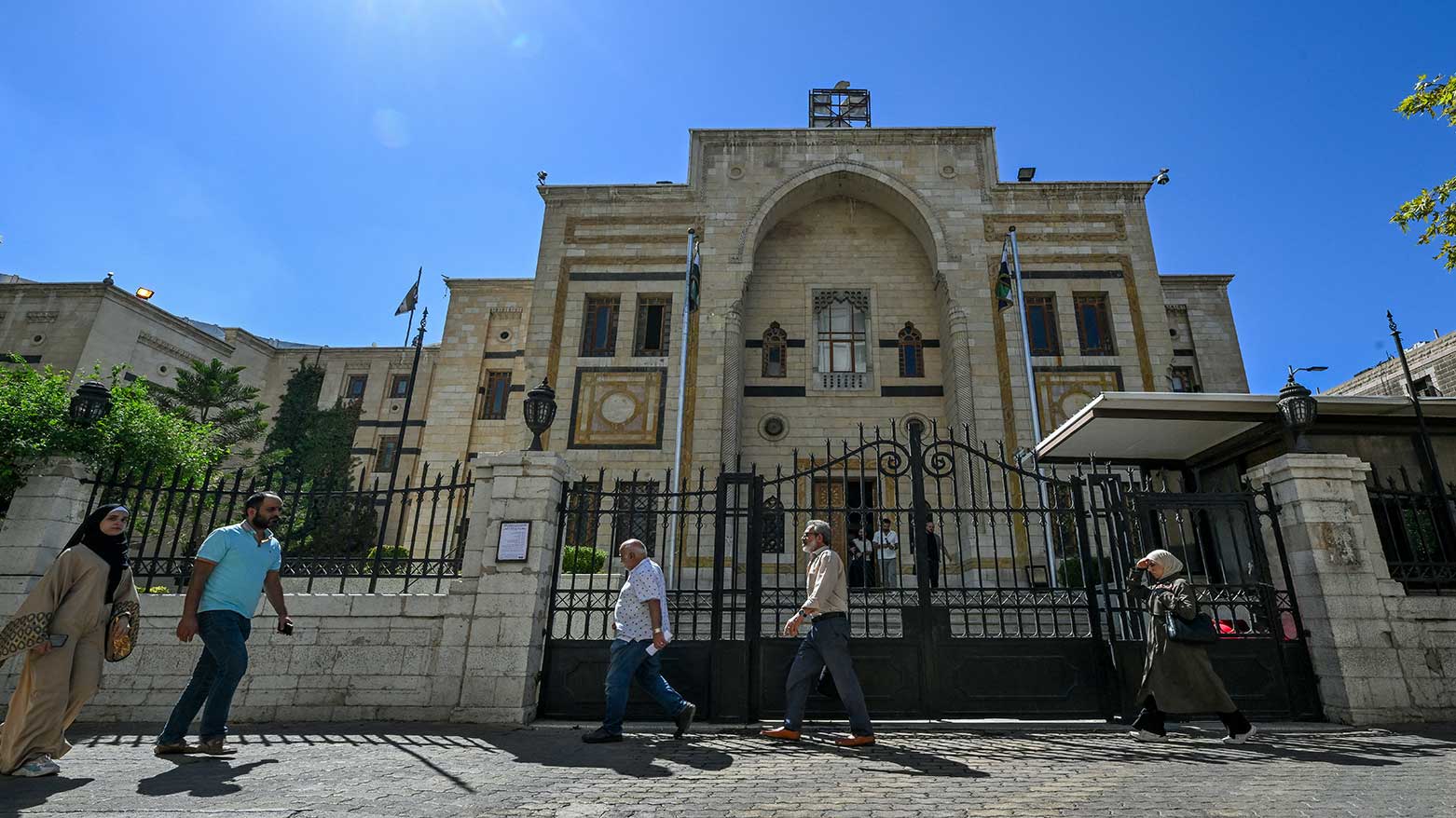Sharaa’s Tight Grip on Syria’s First Post-War Parliament Sparks Outcry
With key regions excluded and one-third of seats appointed directly by Sharaa, many Syrians see the process as a step backward for democracy.

ERBIL (Kurdistan24) — Syria will select members of its first post-Assad parliament on Sunday in a process already dismissed by critics as undemocratic, with interim leader Ahmed al-Sharaa set to appoint one-third of the assembly himself — a move seen by many as entrenching his growing dominance over the country’s fragile transition.
The 210-member assembly, which will serve under a temporary constitution until new elections are held, is meant to symbolize Syria’s rebirth after 13 years of civil war that ended Bashar al-Assad’s decades-long rule last December. Yet, for many Syrians, it instead underscores the limits of political change in a country still deeply scarred by sectarian divisions, displacement, and authoritarian reflexes.
According to the organizing committee, more than 1,500 candidates — only 14 percent of them women — are vying for seats in a process controlled by local committees appointed by an electoral commission that itself answers to Sharaa.
Out of the total 210 seats, 70 will be directly appointed by the interim leader, giving him an assured majority.
Voting will not take place in several key regions, including the Druze-majority Sweida province in the south — where fierce sectarian clashes erupted in July — and the Kurdish-held northeast, which remains outside Damascus’s authority.
The 32 seats allotted to these areas will remain vacant, highlighting the de facto fragmentation of Syria even after the war’s official end.
"I support the authorities and I'm ready to defend them, but these aren't real elections," Louay al-Arfi told AFP, a retired civil servant in Damascus. "It's a necessity in the transitional phase, but we want direct elections to follow."
Sharaa, whose Islamist coalition rose to power after toppling Assad, argues that genuine elections are not yet feasible due to the millions of Syrians lacking identification papers after years of mass displacement and exile.
Human rights organizations and Syrian civil society groups have roundly criticized the process, warning that Sharaa’s dominance risks turning the parliament into another rubber-stamp body like those of the Assad era.
“You can call the process what you like, but not elections,” said Bassam Alahmad, executive director of Syrians for Truth and Justice. A coalition of more than a dozen NGOs echoed that sentiment in a recent statement, saying the process “allows Sharaa to shape a parliamentary majority composed of individuals he selected or ensured loyalty from,” undermining pluralism and accountability.
Among the few bright spots in the process is the participation of Syrian-American Henry Hamra, the first Jewish candidate to run in Syrian politics since the 1940s — a symbolic gesture that observers say does little to mask the broader democratic deficit.
For many Syrians in regions excluded from the process, the parliamentary selection is seen not as a step toward democracy but as evidence of its continued absence.
“Elections could have been a new political start after Assad’s fall,” said Nishan Ismail, a teacher in the Kurdish-held northeast. “But the marginalization of numerous regions shows that the standards of political participation are not respected.”
Negotiations between Damascus and Kurdish leaders on integrating local institutions into the central government have stalled, largely over disputes about autonomy. Meanwhile, in Sweida, Druze activist Burhan Azzam said the authorities “have ended political life” altogether, arguing that the process “doesn’t respect the basic rules of democracy.”
In Damascus, however, there was little sign of anticipation ahead of Sunday’s historic vote. The capital’s streets remained quiet, with few campaign posters and no rallies or visible excitement. Many residents said they were unaware that an election was even taking place.
Officials defended the indirect selection system as a temporary necessity amid postwar disarray, noting that millions of Syrians remain displaced or lack identification papers. Yet activists and rights groups questioned the credibility of the process, citing the absence of independent monitors and the limited participation of opposition figures.
For most citizens, the exercise feels remote from their daily struggles with power cuts, inflation, and insecurity — a muted prelude to what many fear could be a recycled version of Syria’s old political order.
Critics say the upcoming assembly is unlikely to act independently of Sharaa, whose leadership remains untested beyond the military victory that brought him to power.
The transitional parliament’s 30-month renewable mandate could allow him to consolidate authority before drafting a permanent constitution, shaping the future of Syrian governance in his image.
The question now is whether Sharaa’s promise of eventual free elections will materialize — or whether Syria’s long-awaited political renewal will give way once again to centralized rule, this time under a new name.